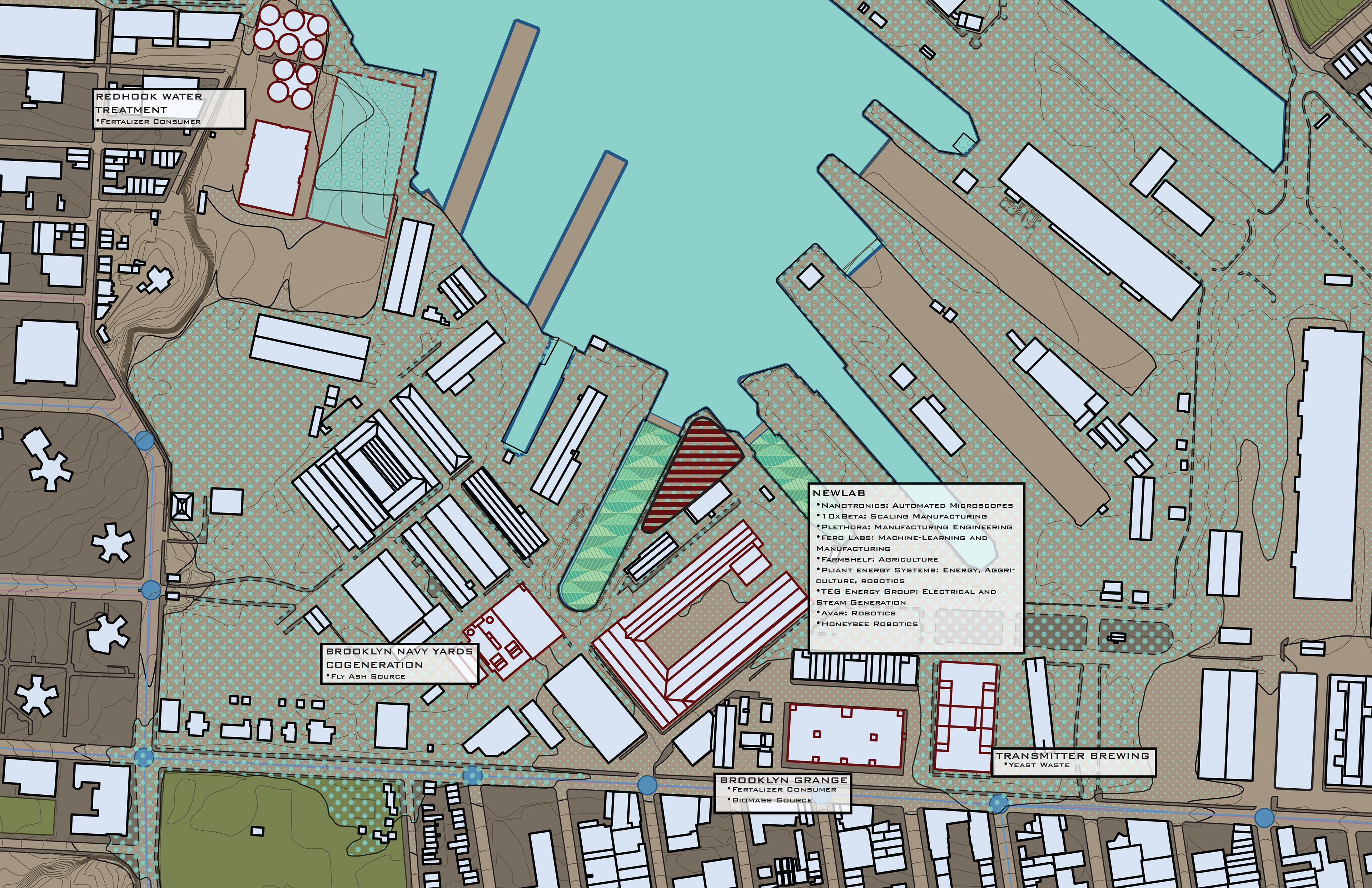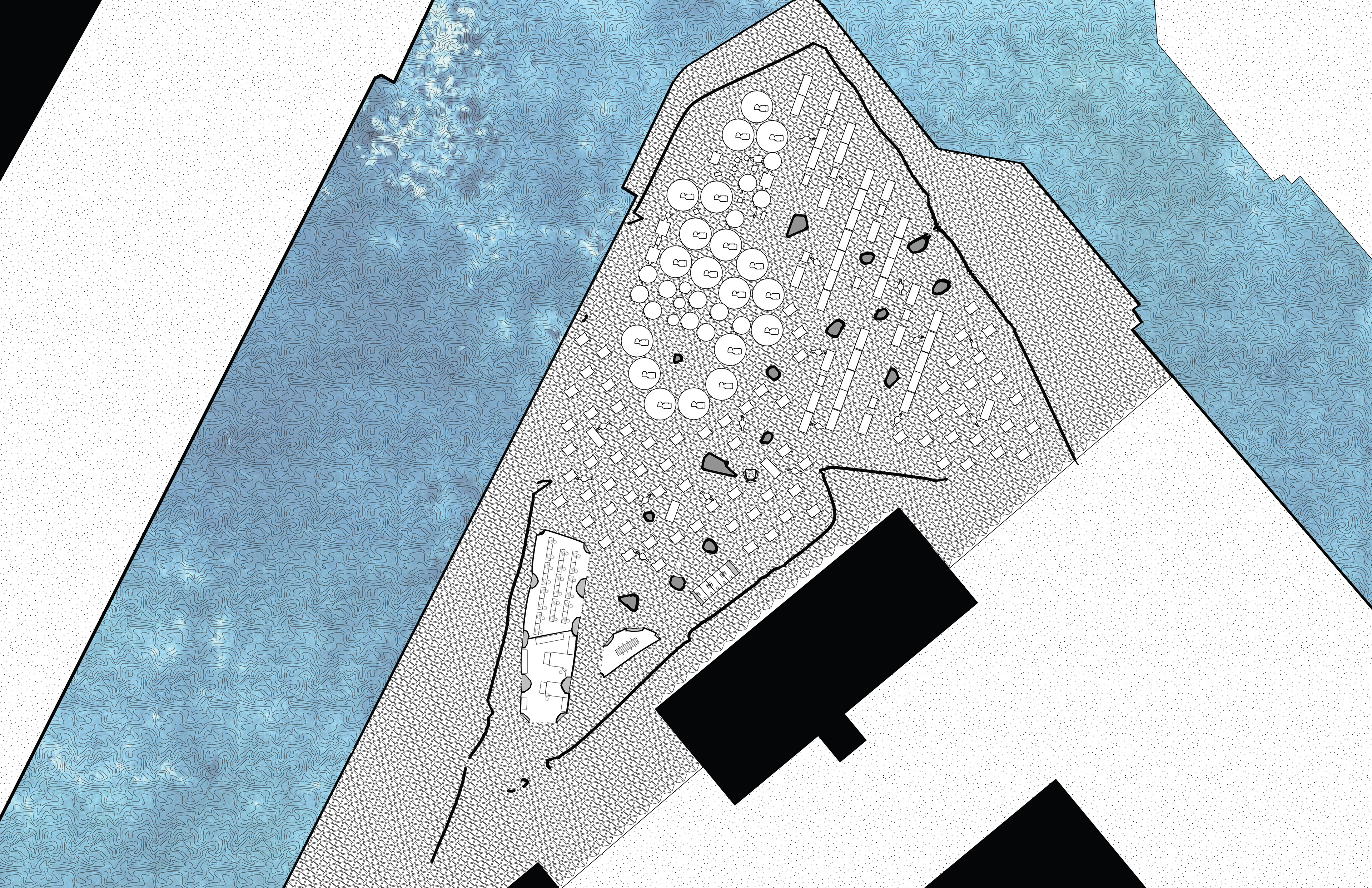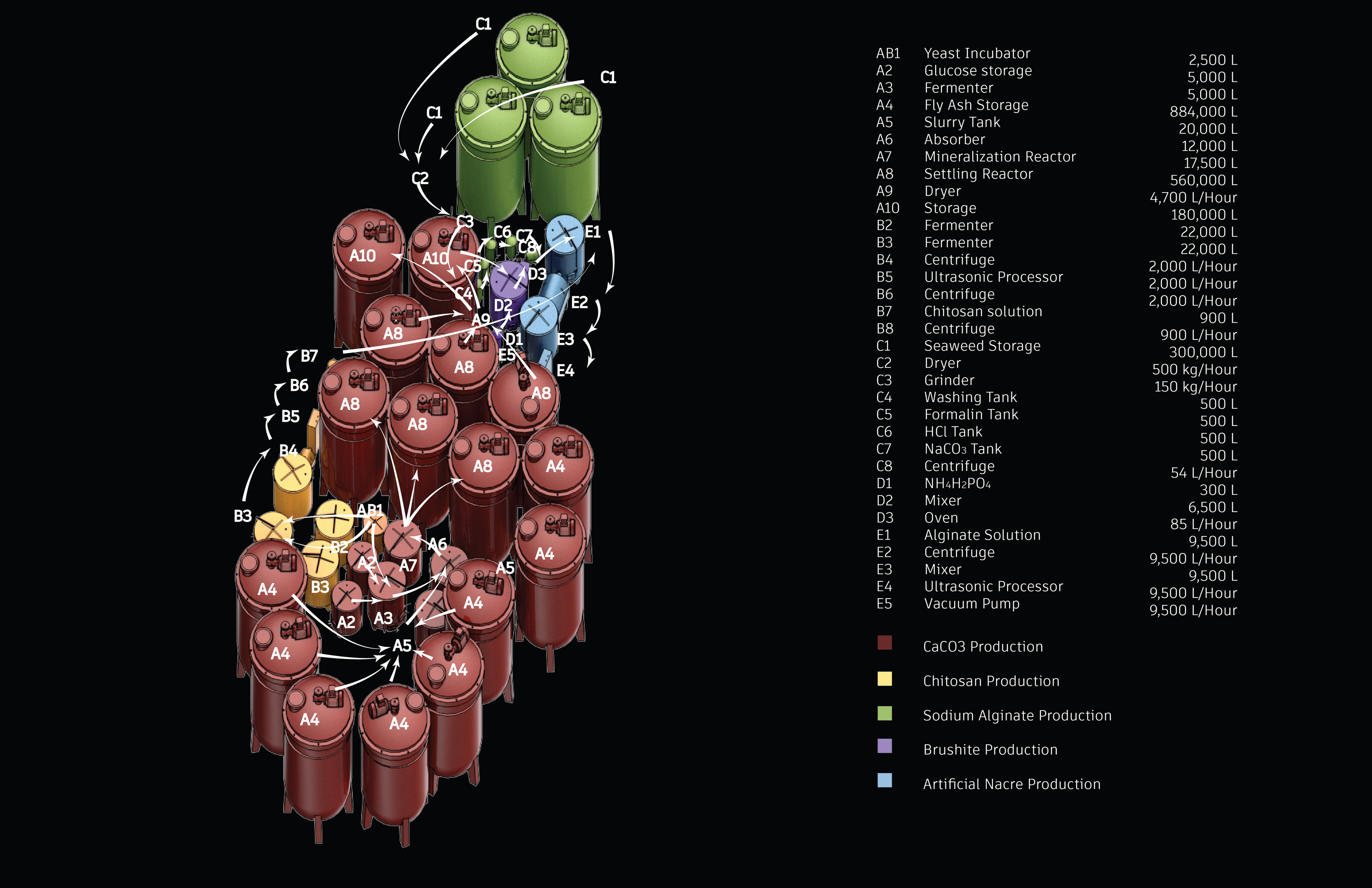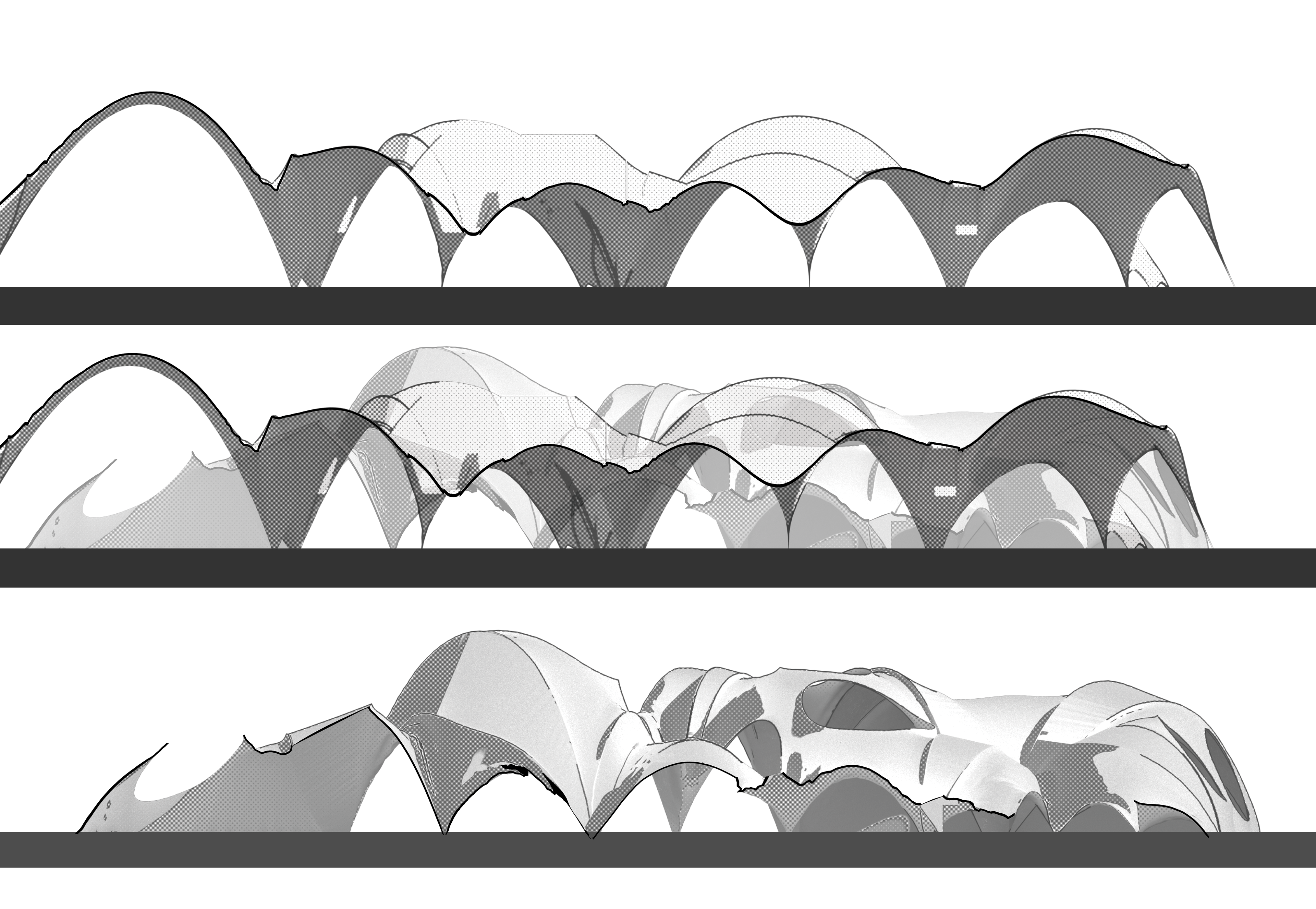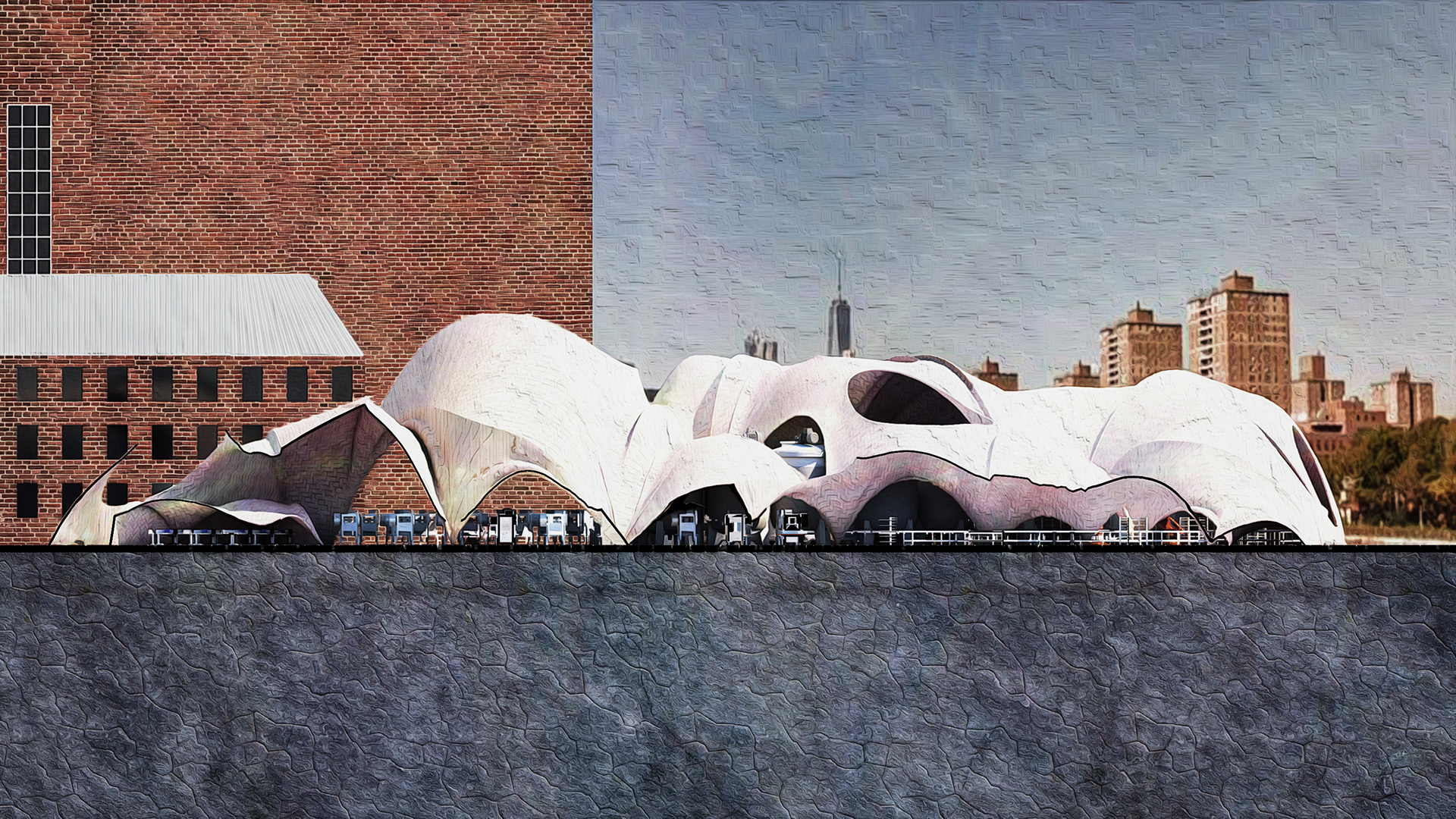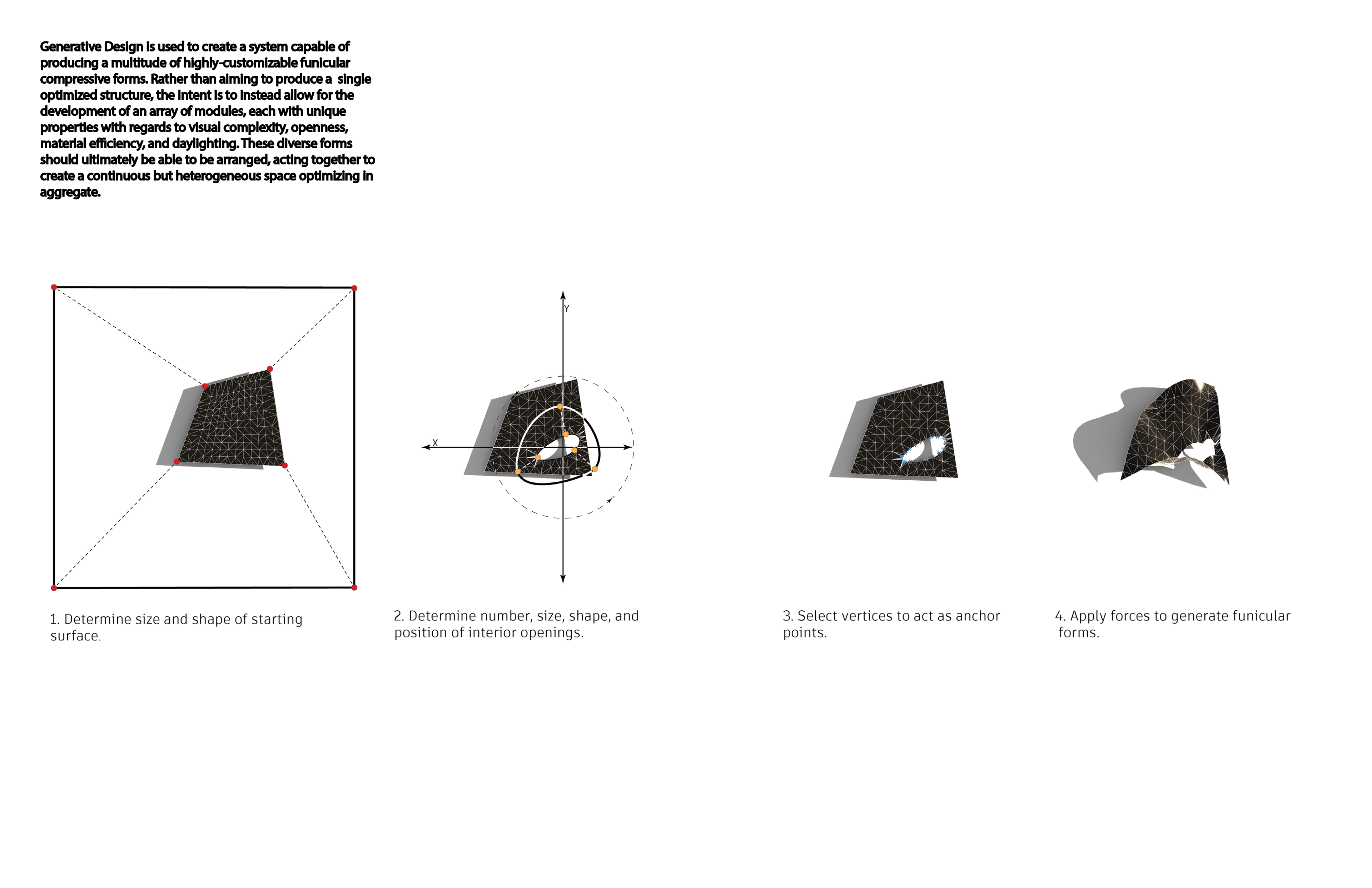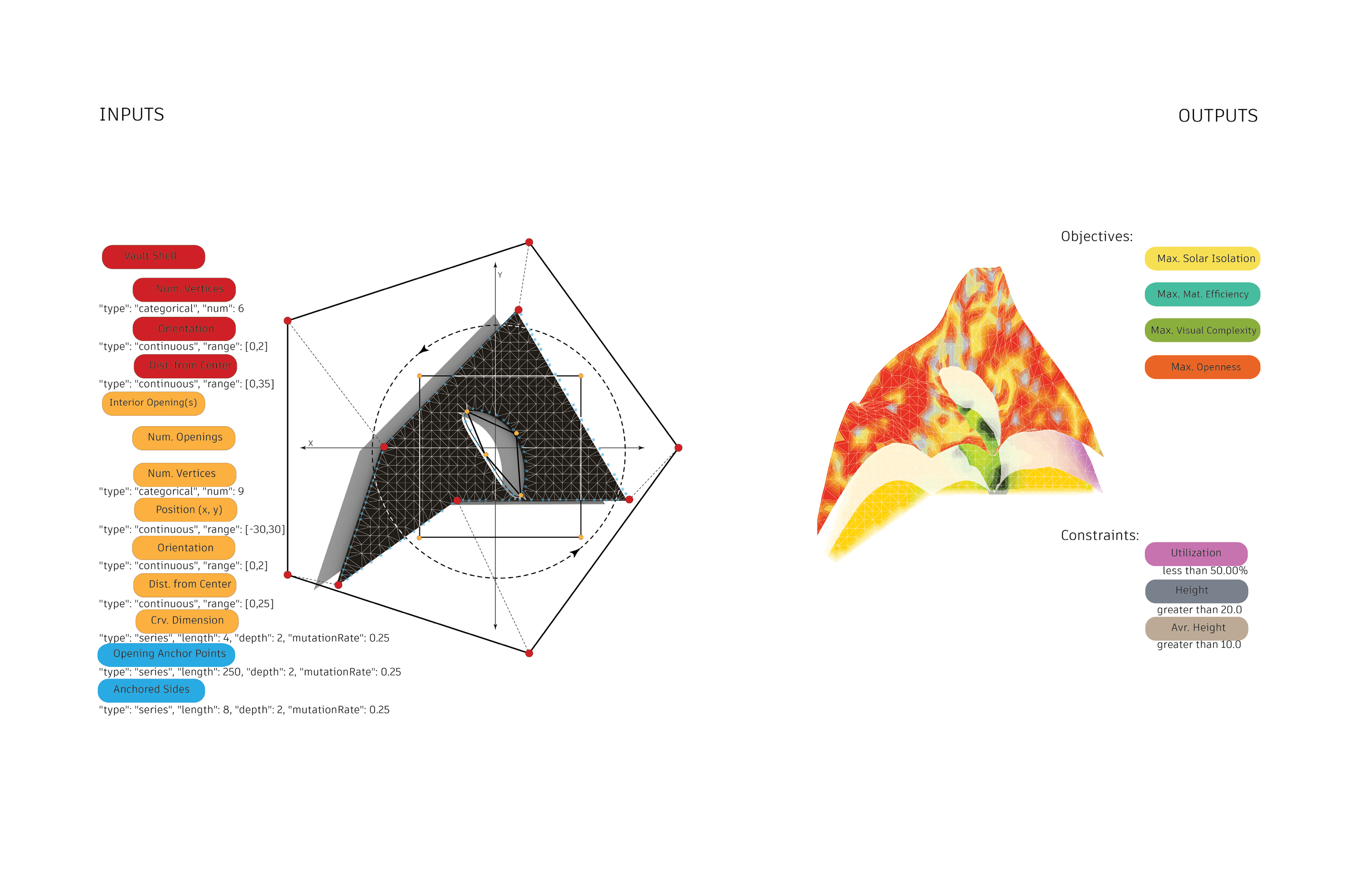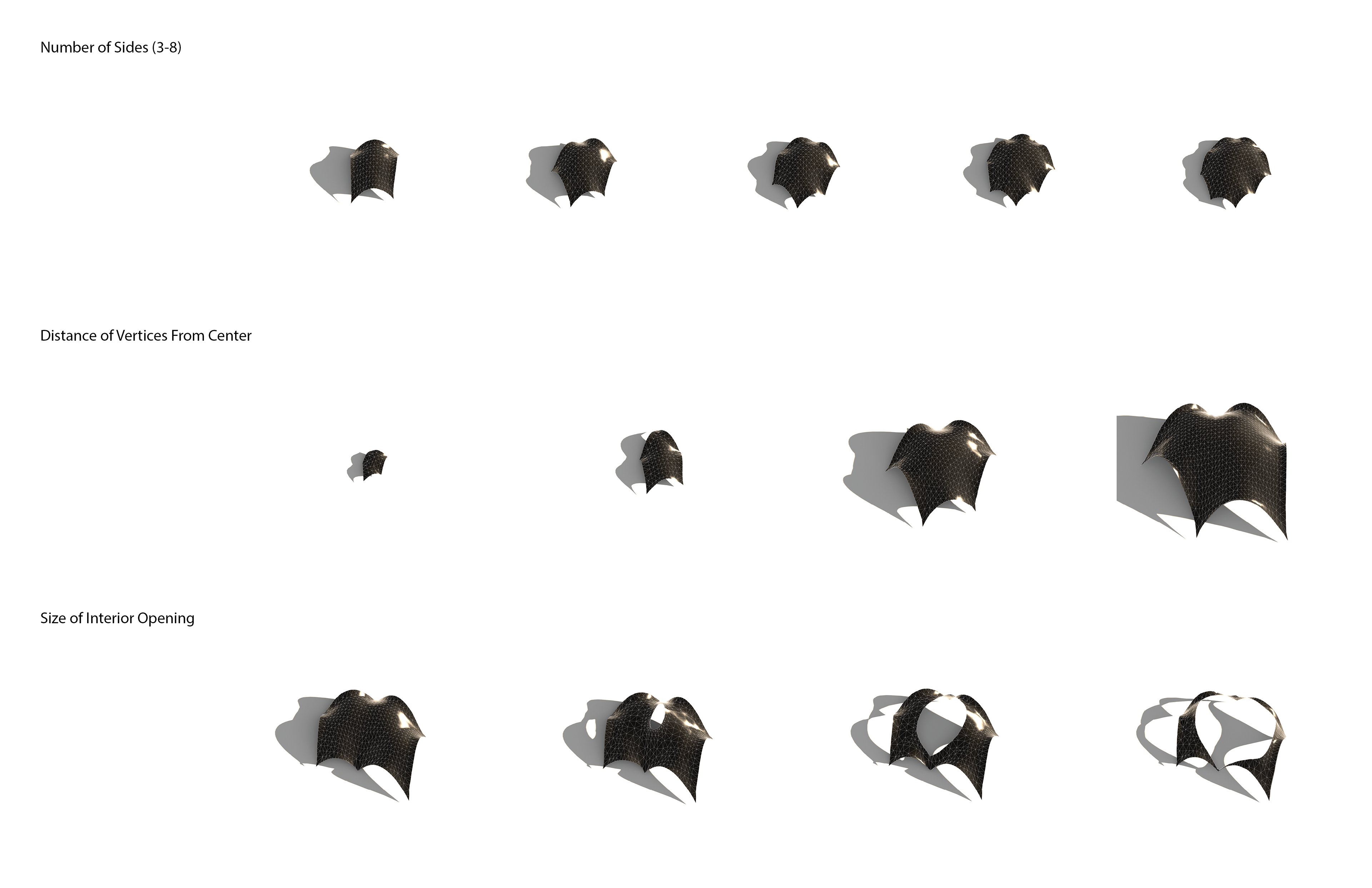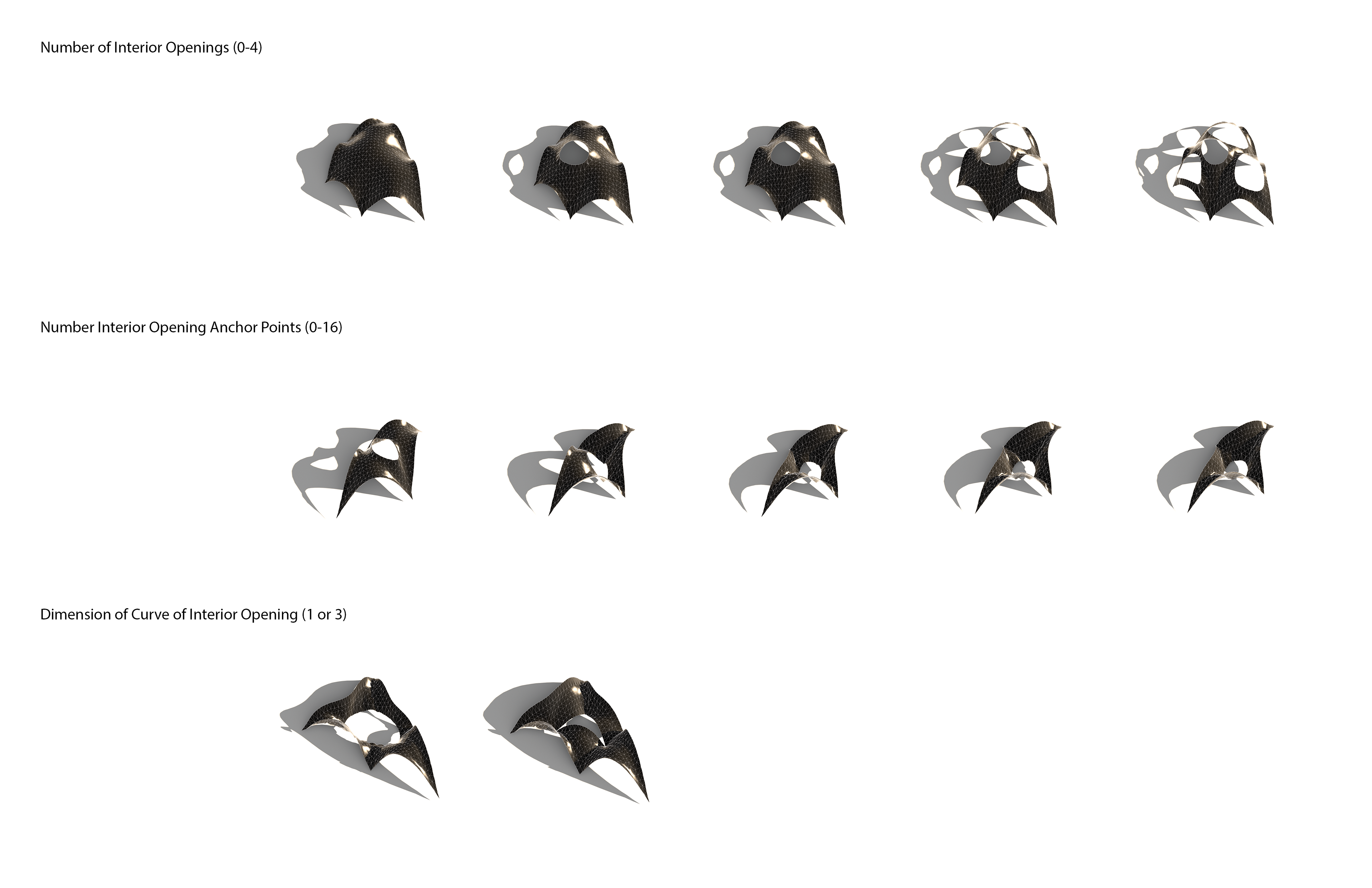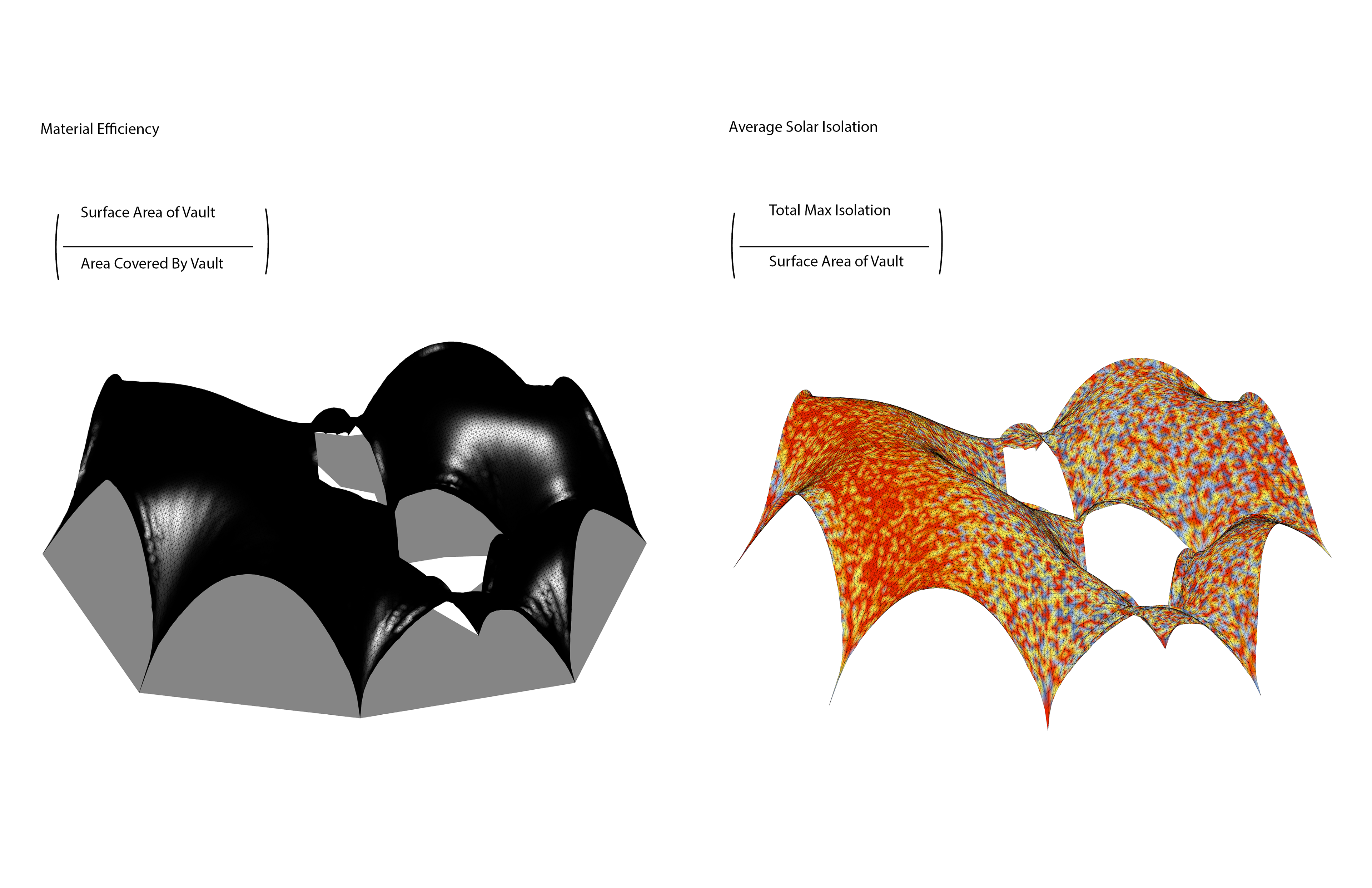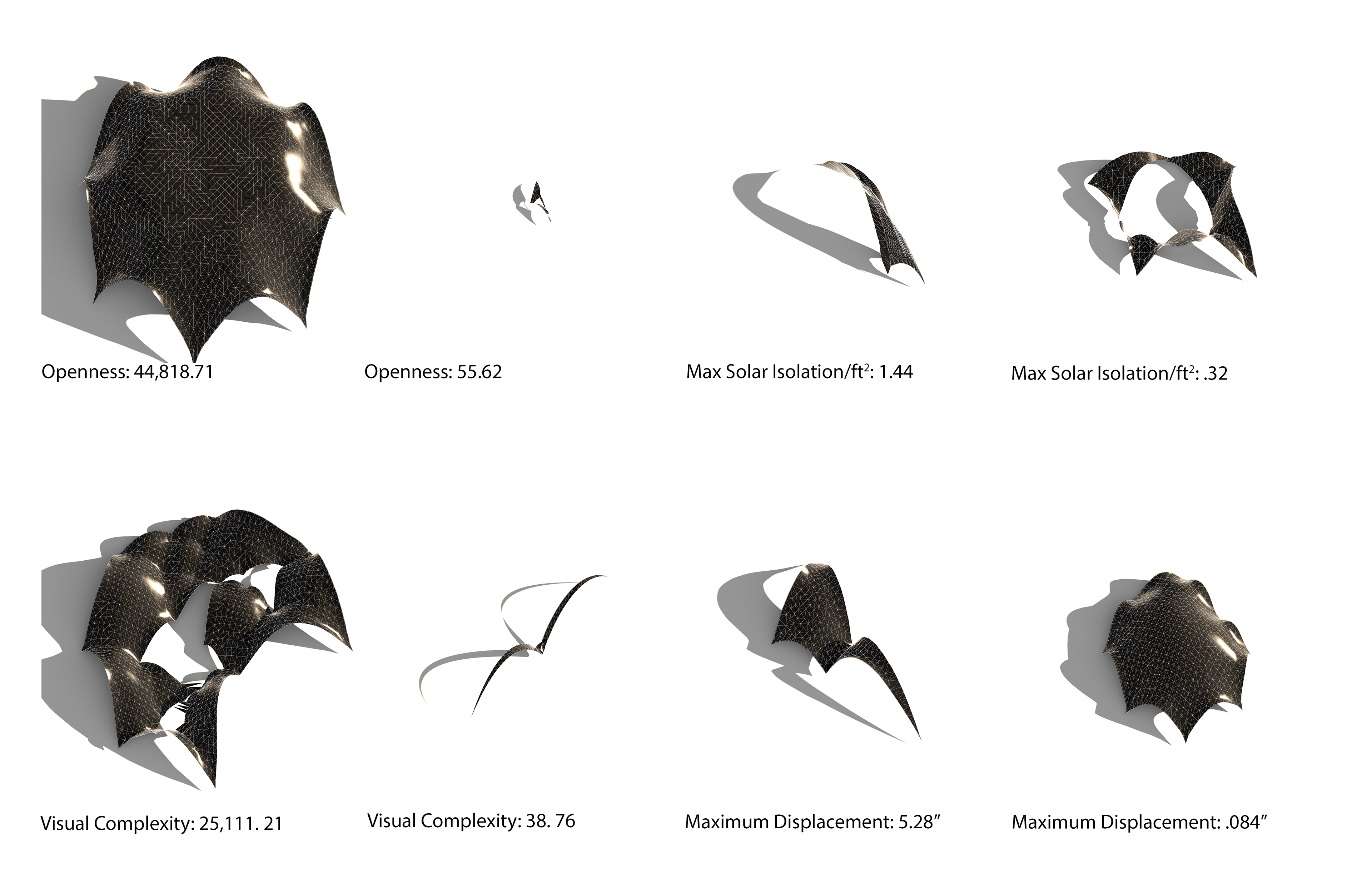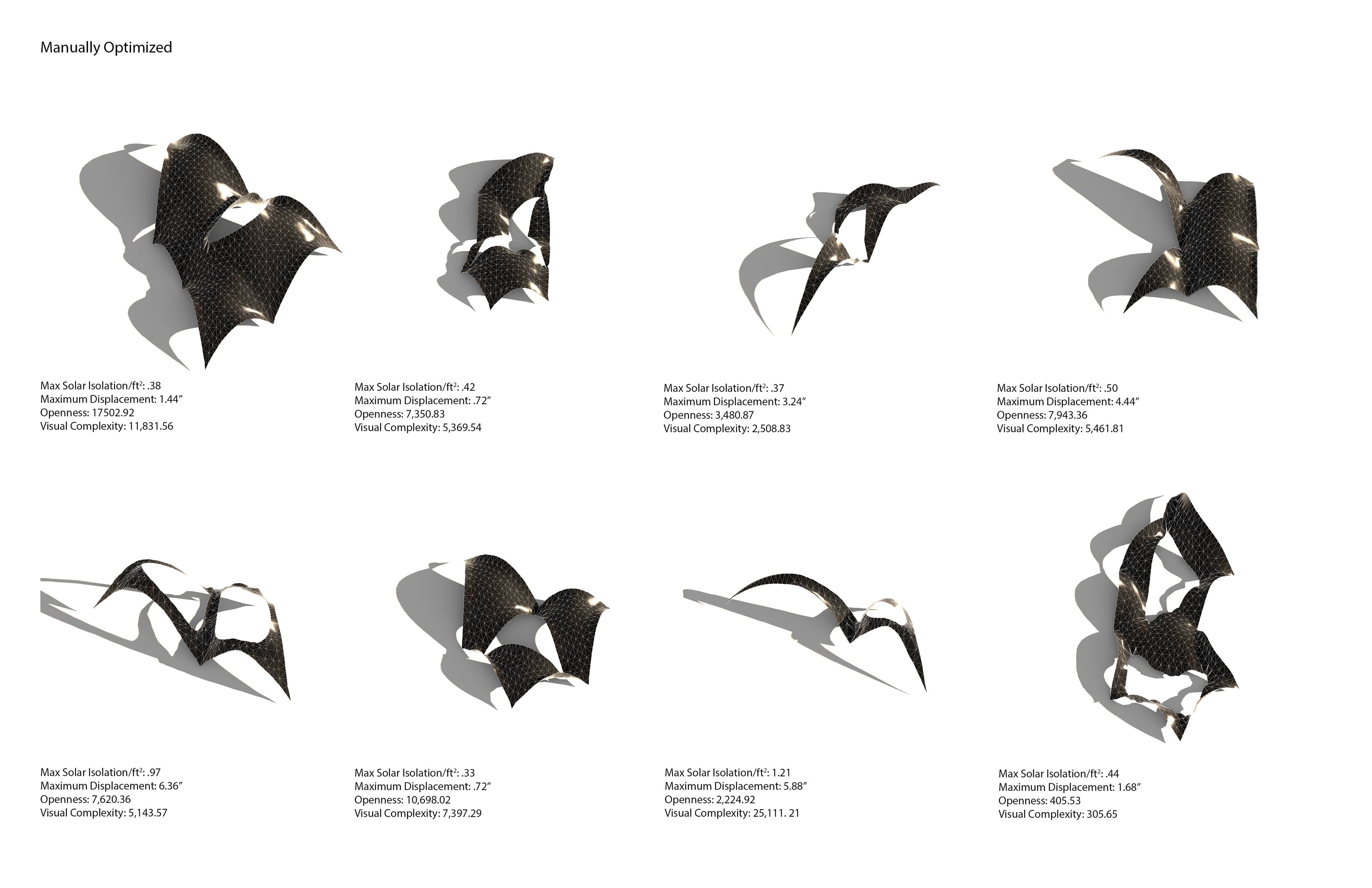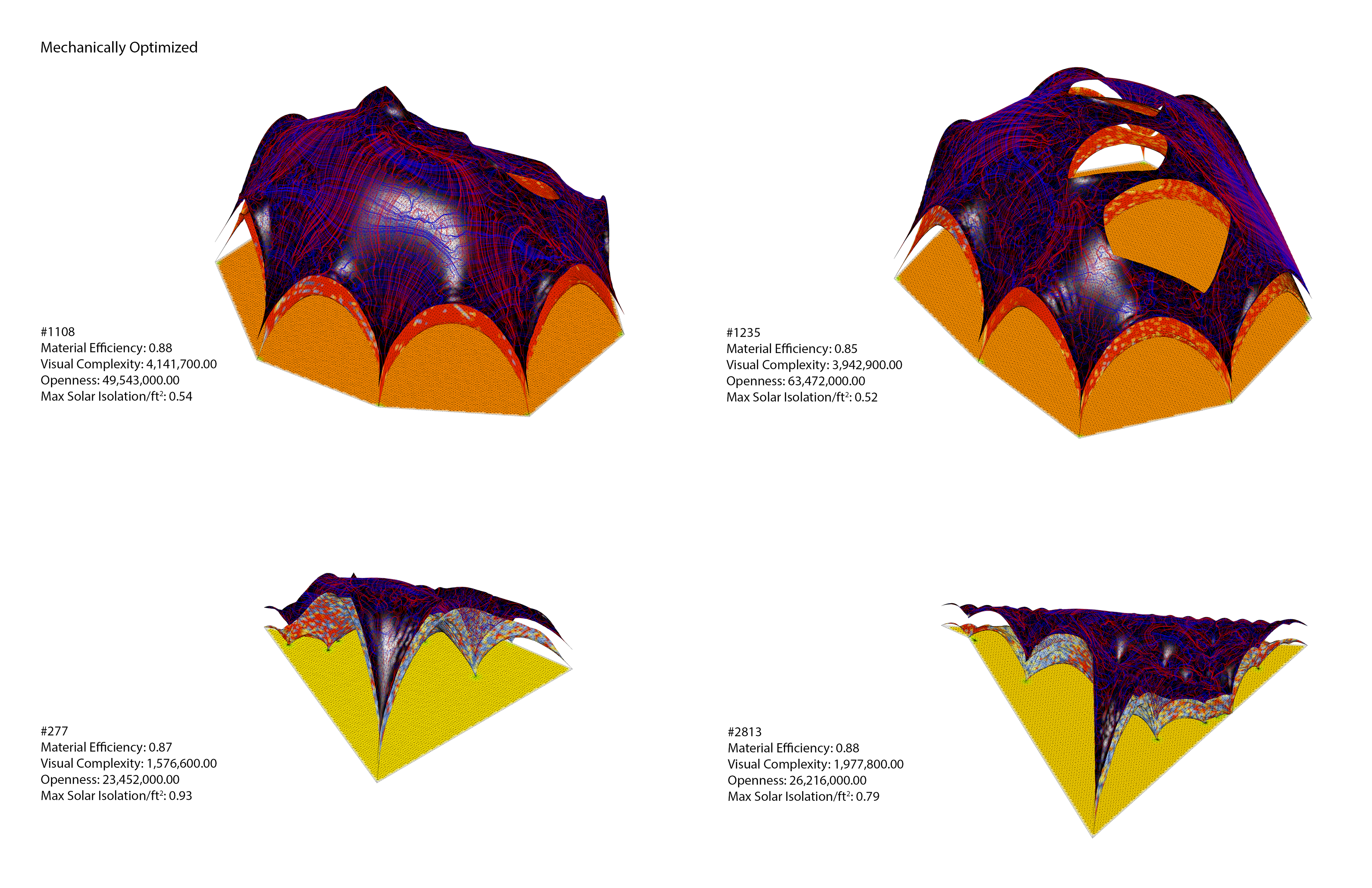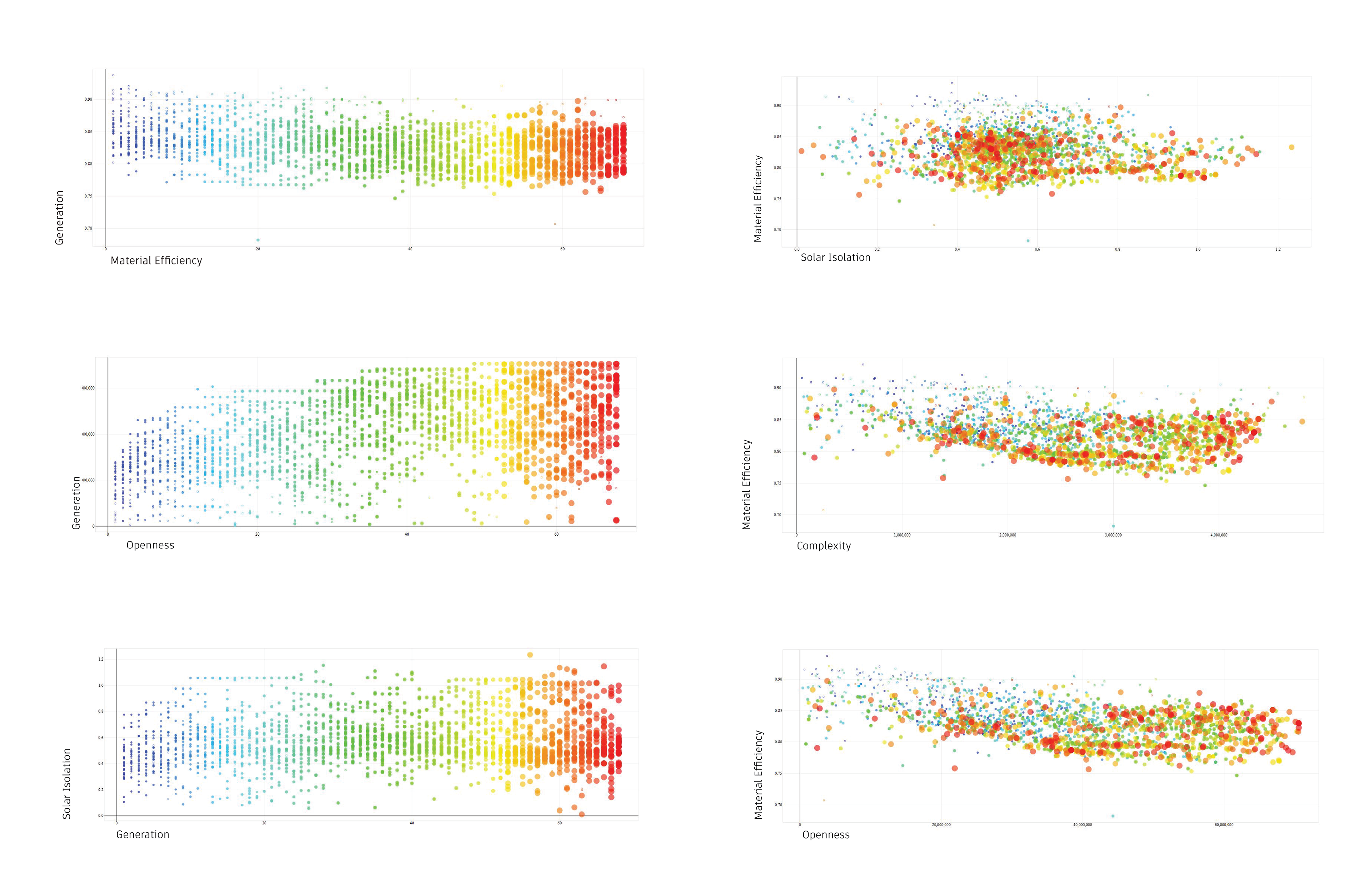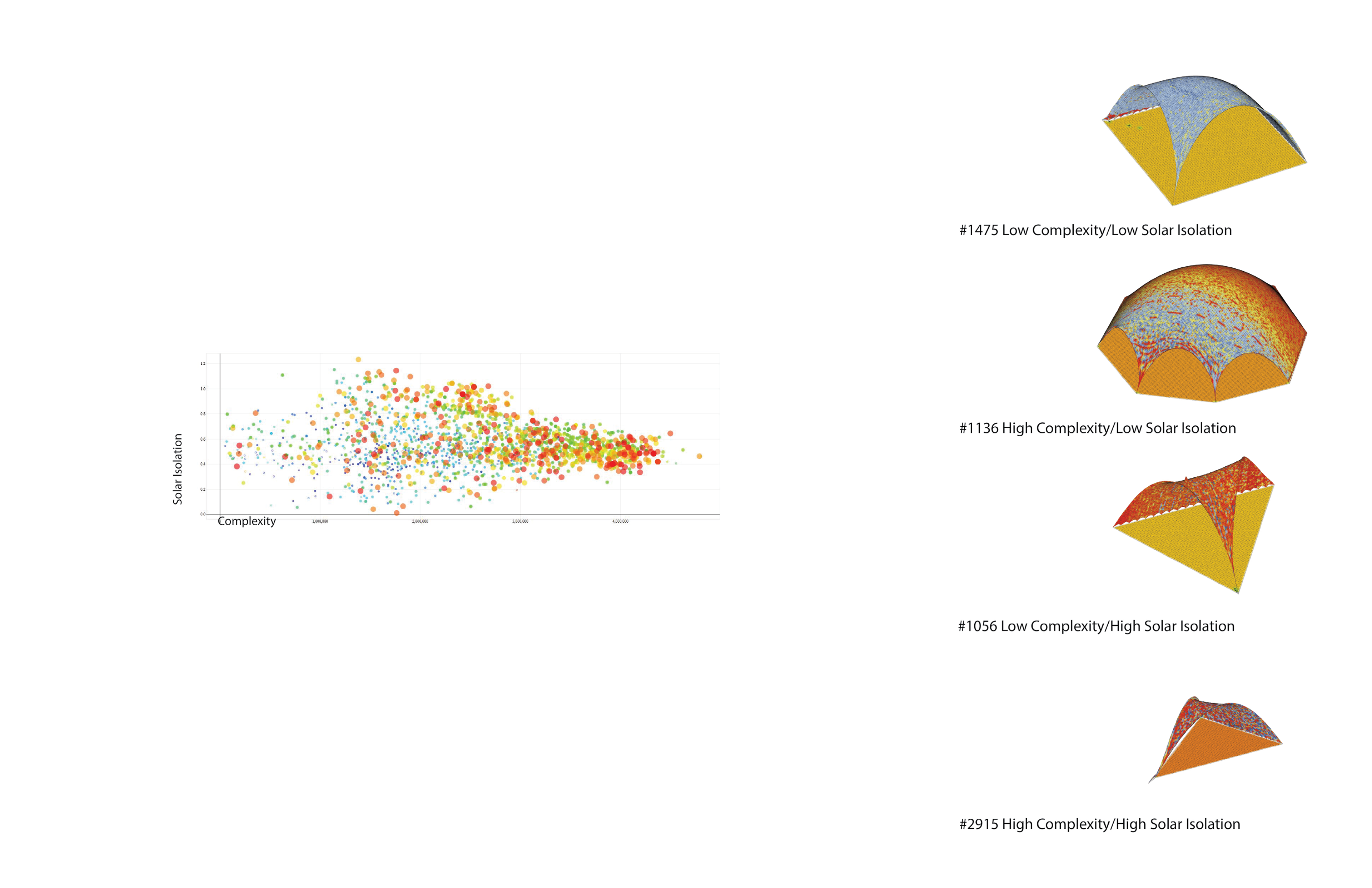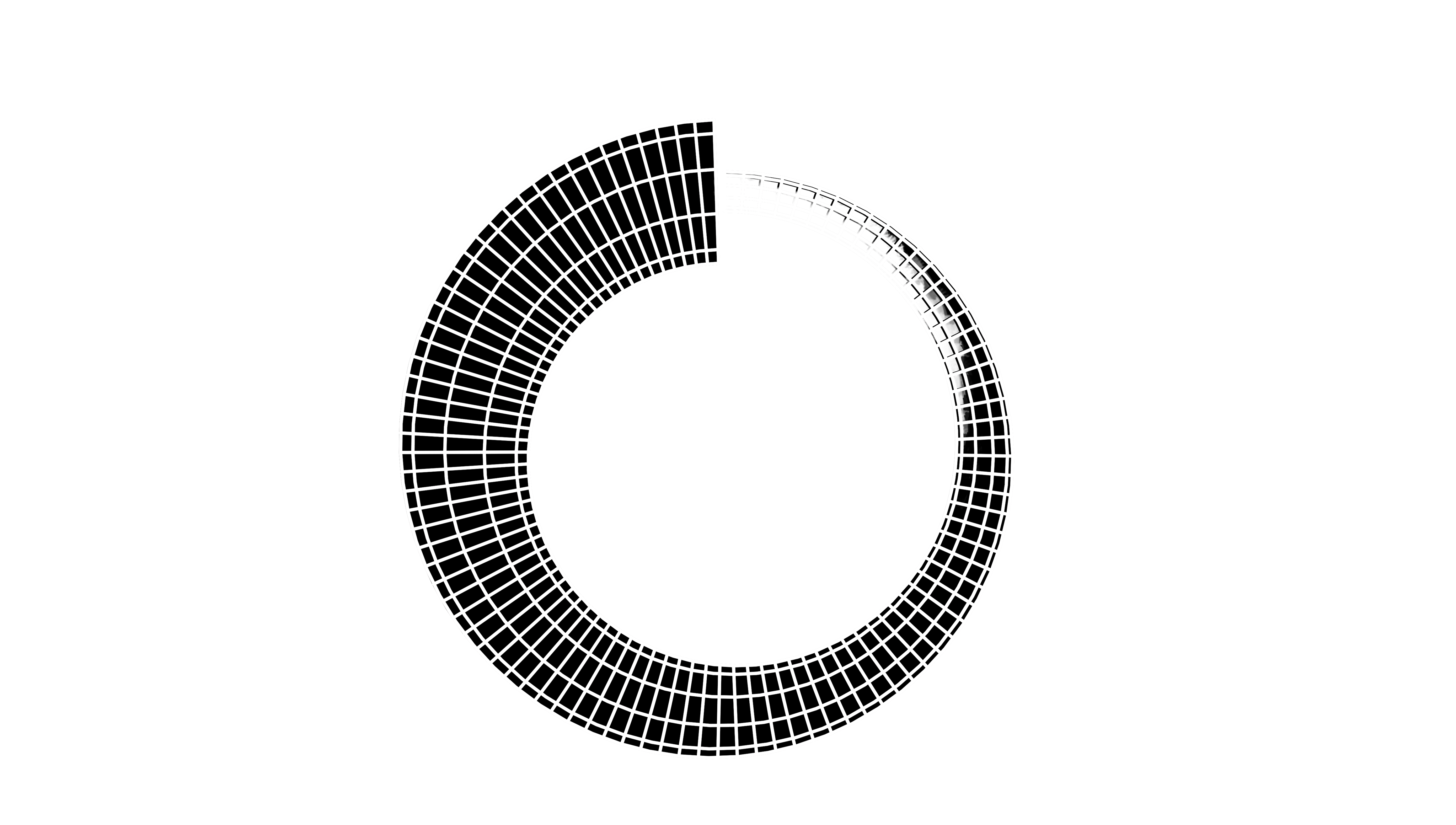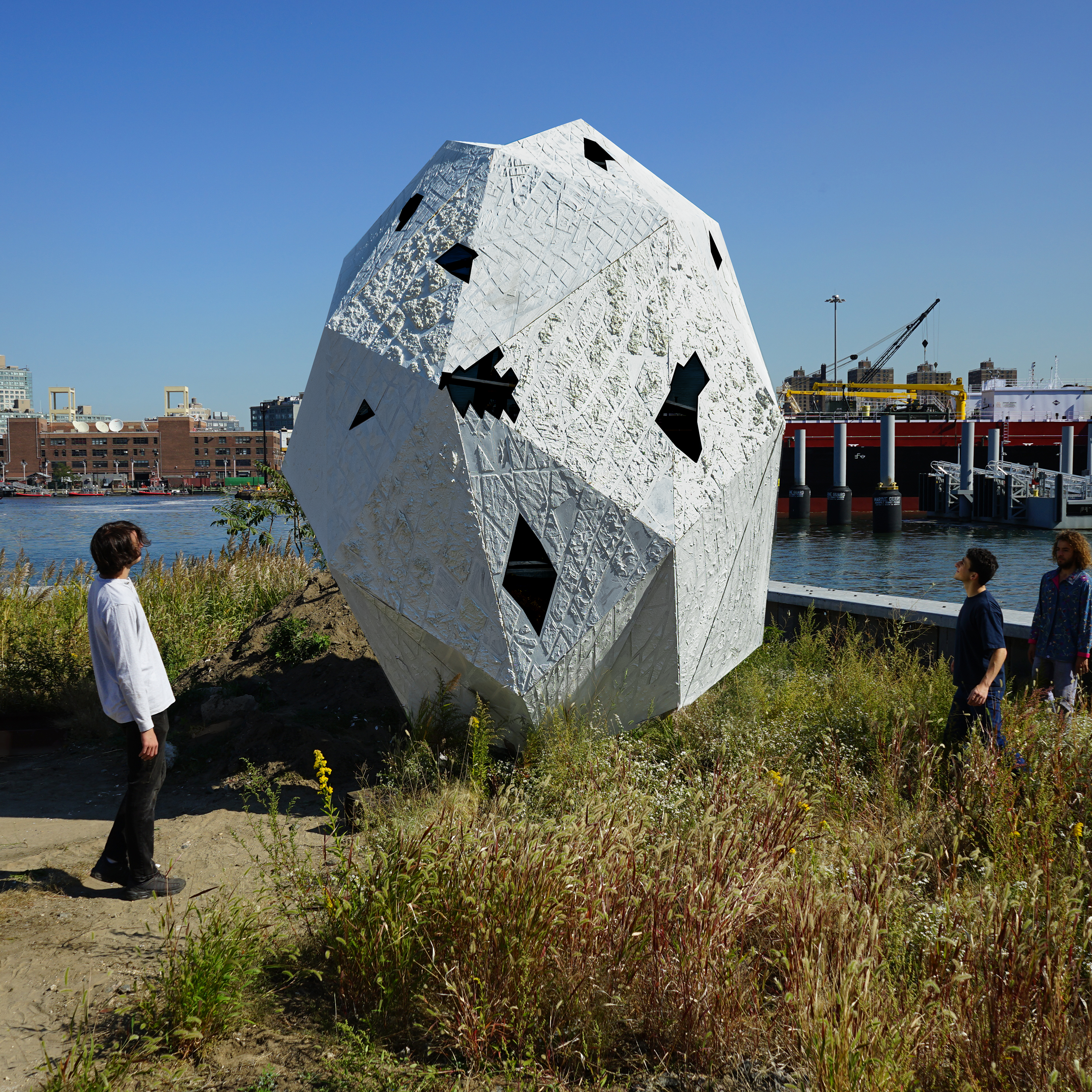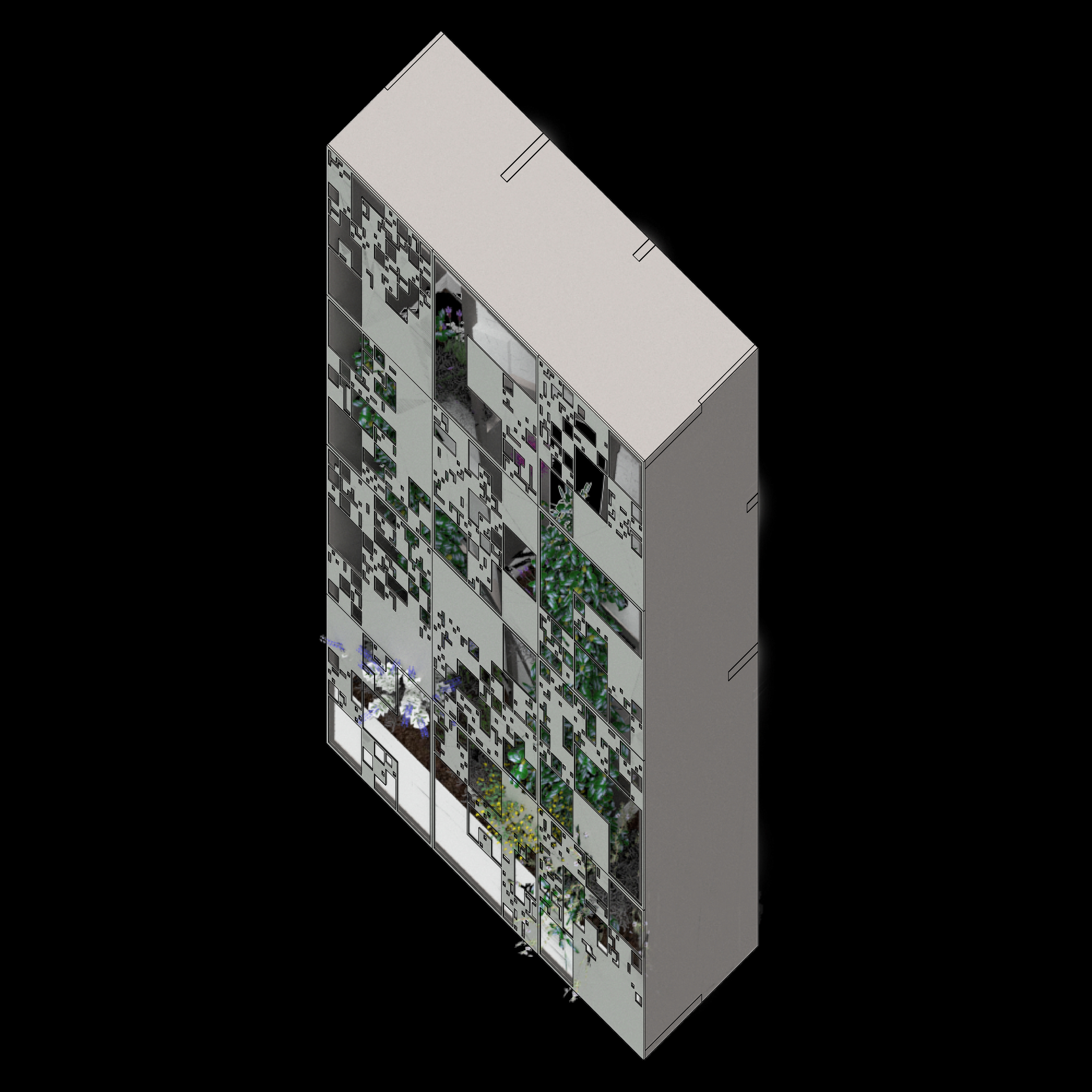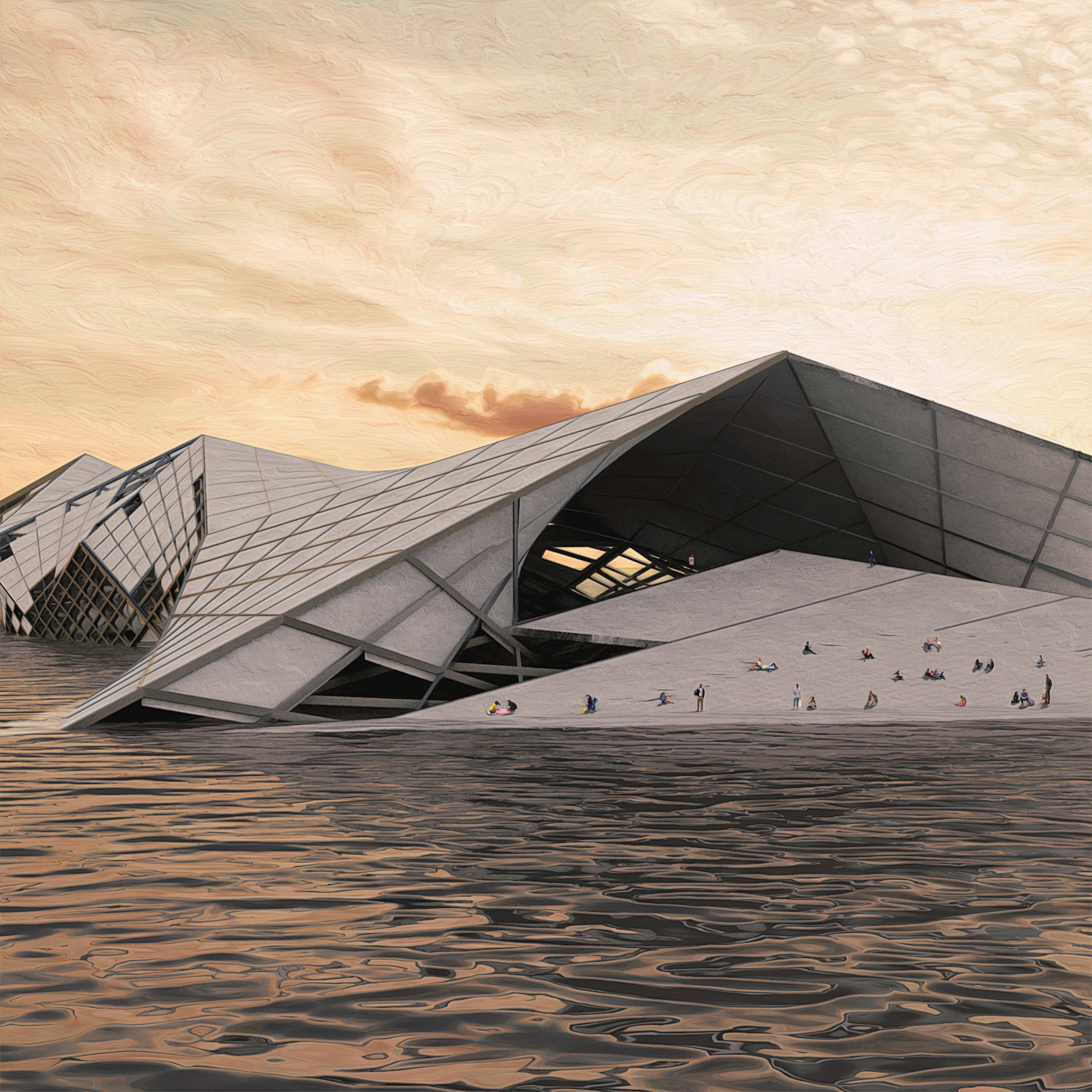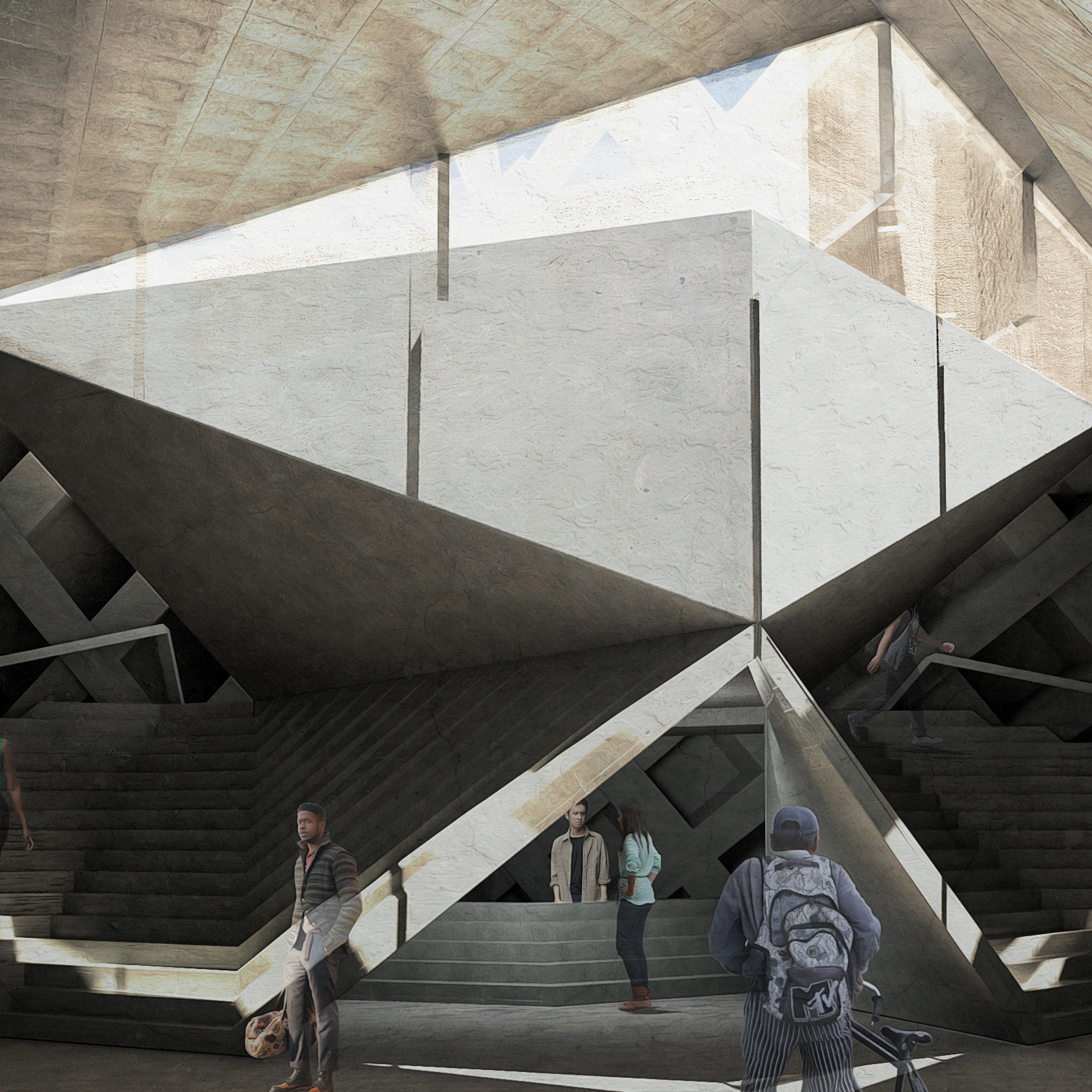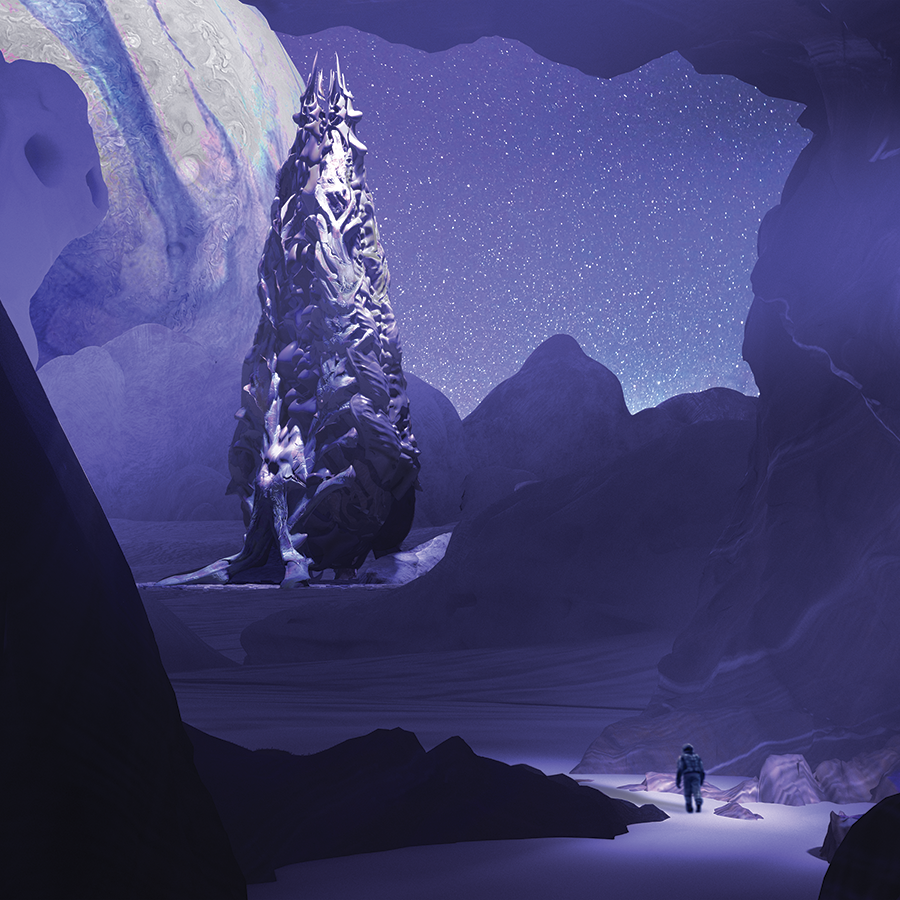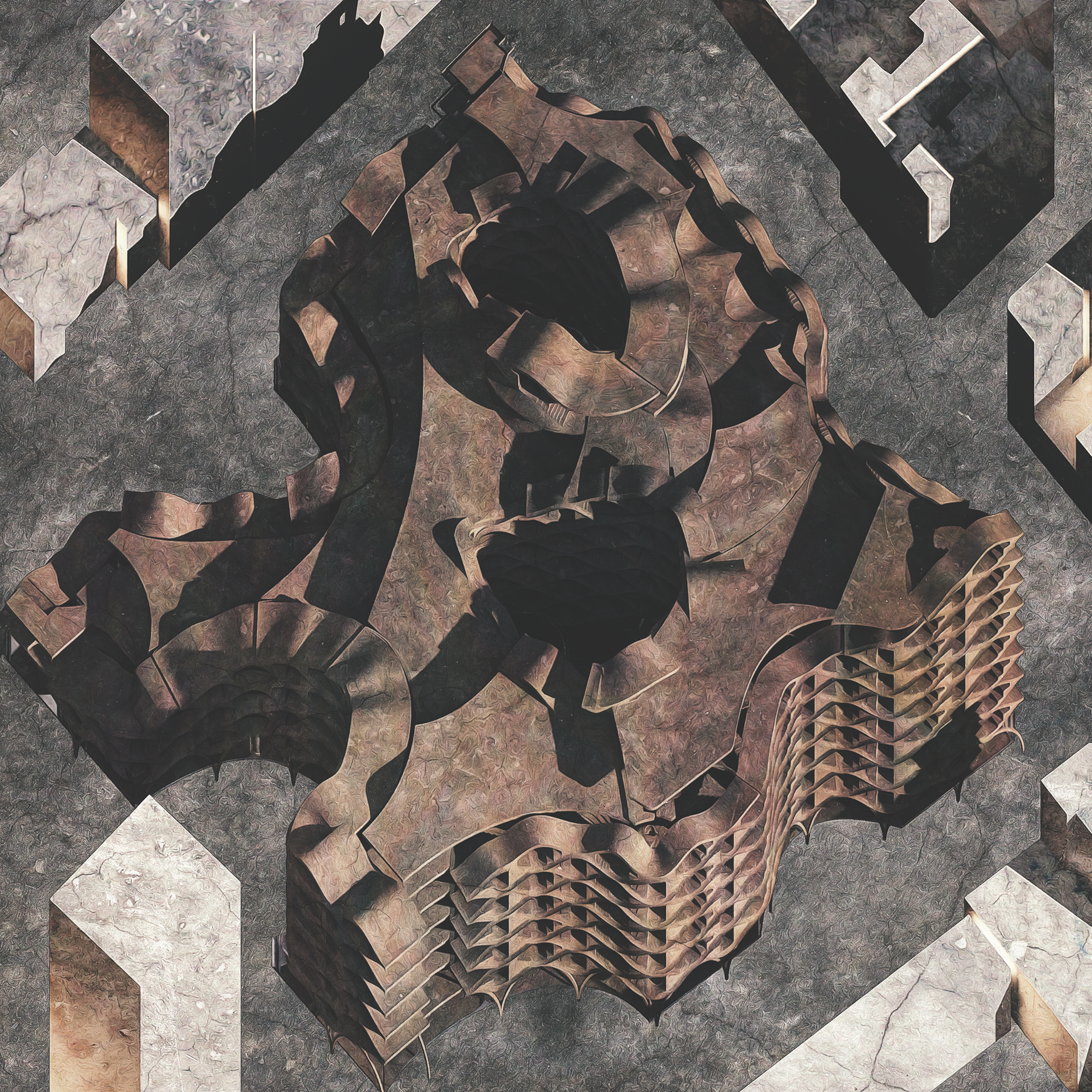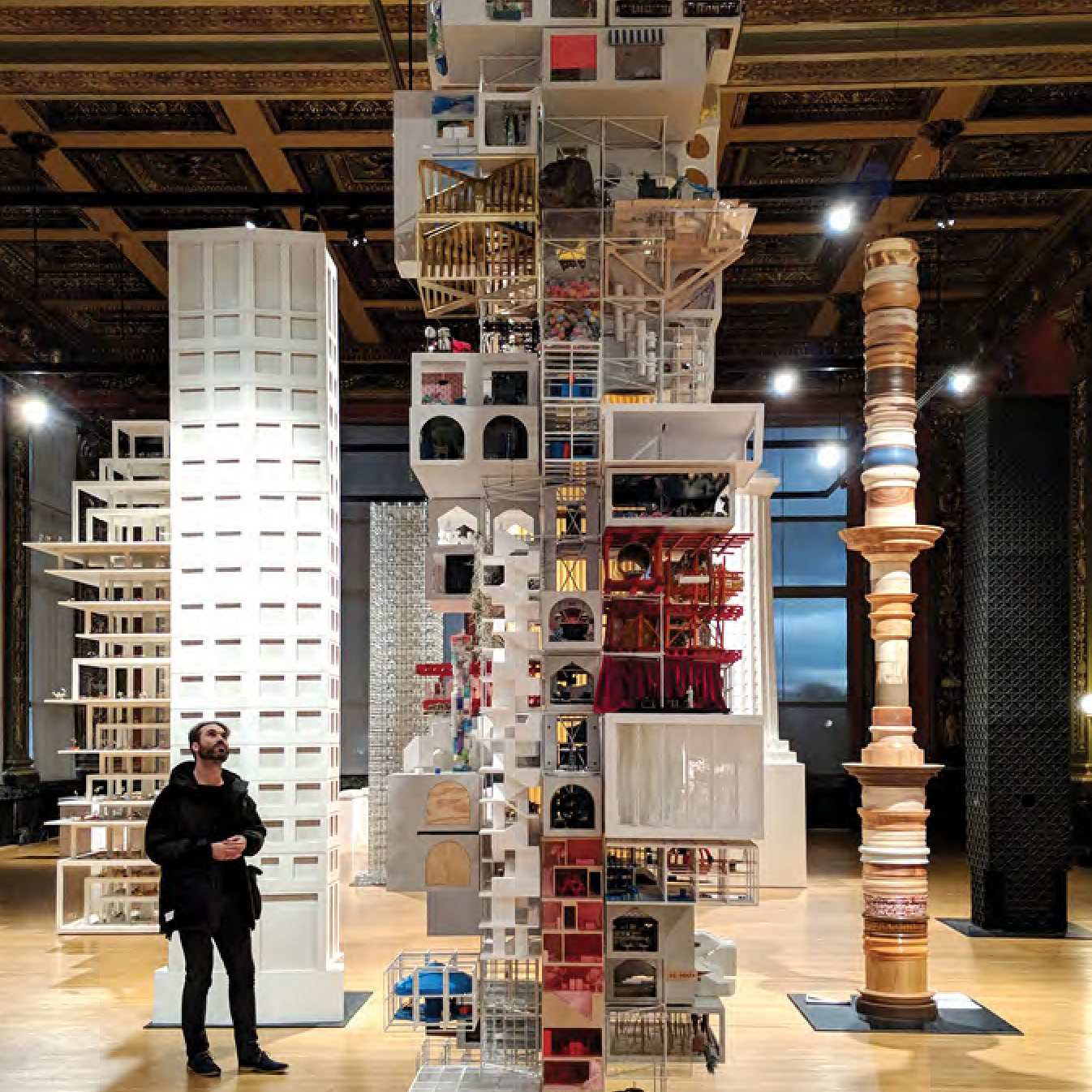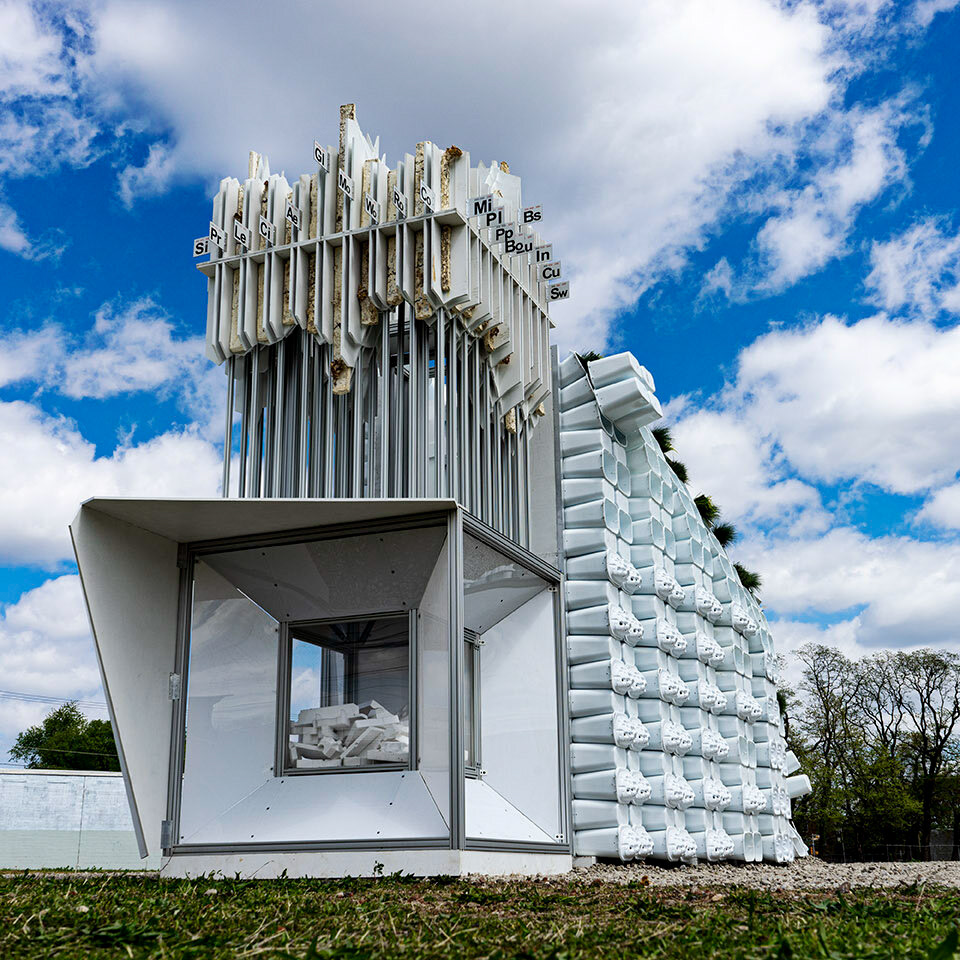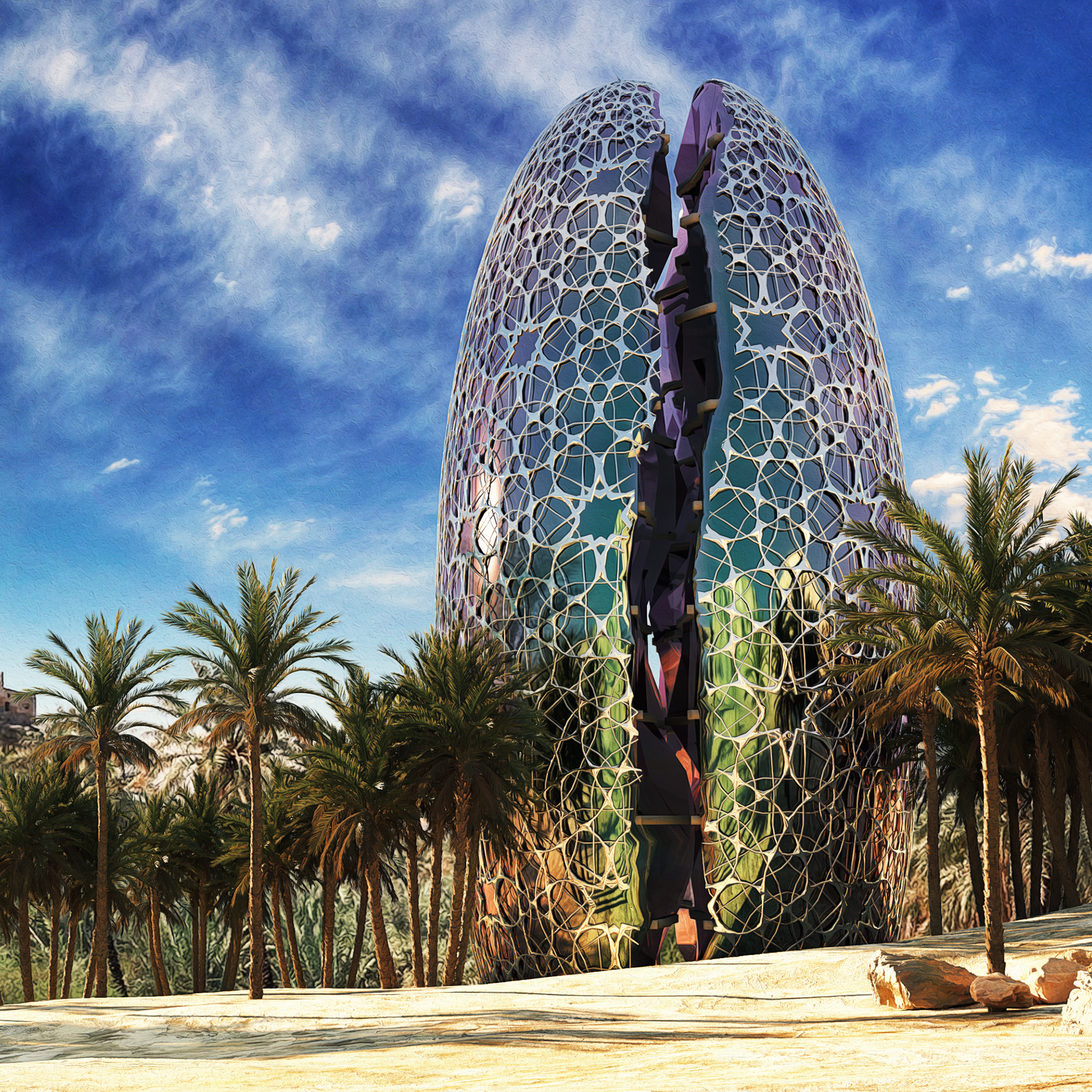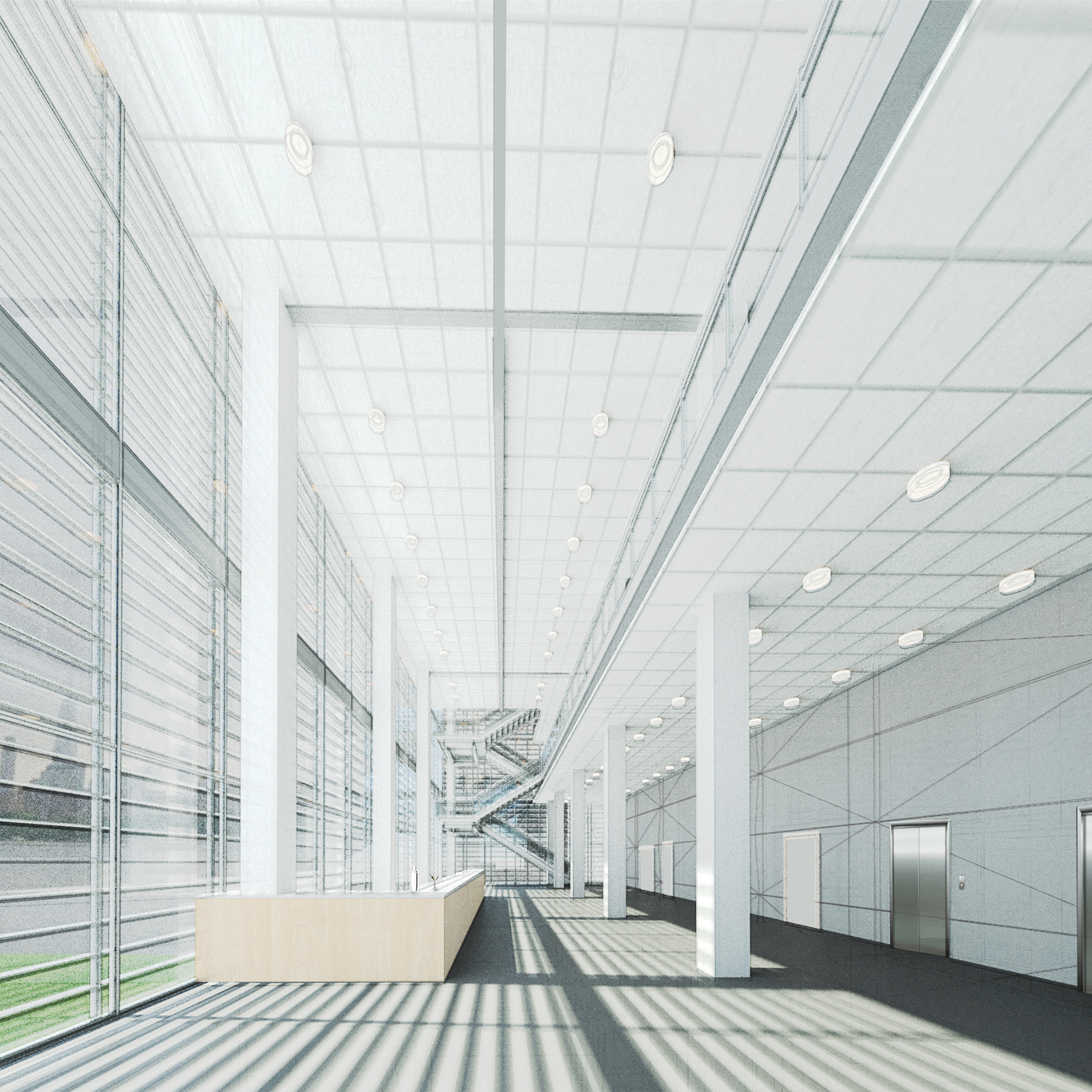Critic: David Benjamin
Proteus assumes the inevitability of automation and represents a potential conclusion to the process. It reimagines the building as a self-sufficient and self-determined agent; challenging concepts of optimization, the immutability of objects’ identity and the relationship between man and its environment. Equal parts factory and institute for machine learning, the facility functions as a network of drones and industrial robots taught to utilize carbon-sequestering synthetic nacre bricks manufactured on site in order to build an array of complex compressive forms.
Generative Design is used to create a system capable of producing a multitude of highly-customizable funicular forms. Rather than aiming to produce a single optimized structure, the intent is to instead allow for the development of an array of modules, each with unique properties with regards to visual complexity, openness, material efficiency, and daylighting. These diverse forms are ultimately to be arranged, and re-arranged, acting together to create a continuous but heterogeneous space optimizing in aggregate.
The building becomes an embodiment of the work taking place within, manifesting not as a single structure, but as a system for construction. With time the building will cease to require any additional input, allowing for total autonomy within the system. Rather than ever settling on a final form, it is caught in a loop of building, deconstructing and rebuilding itself, endlessly seeking an unattainable perfection.
